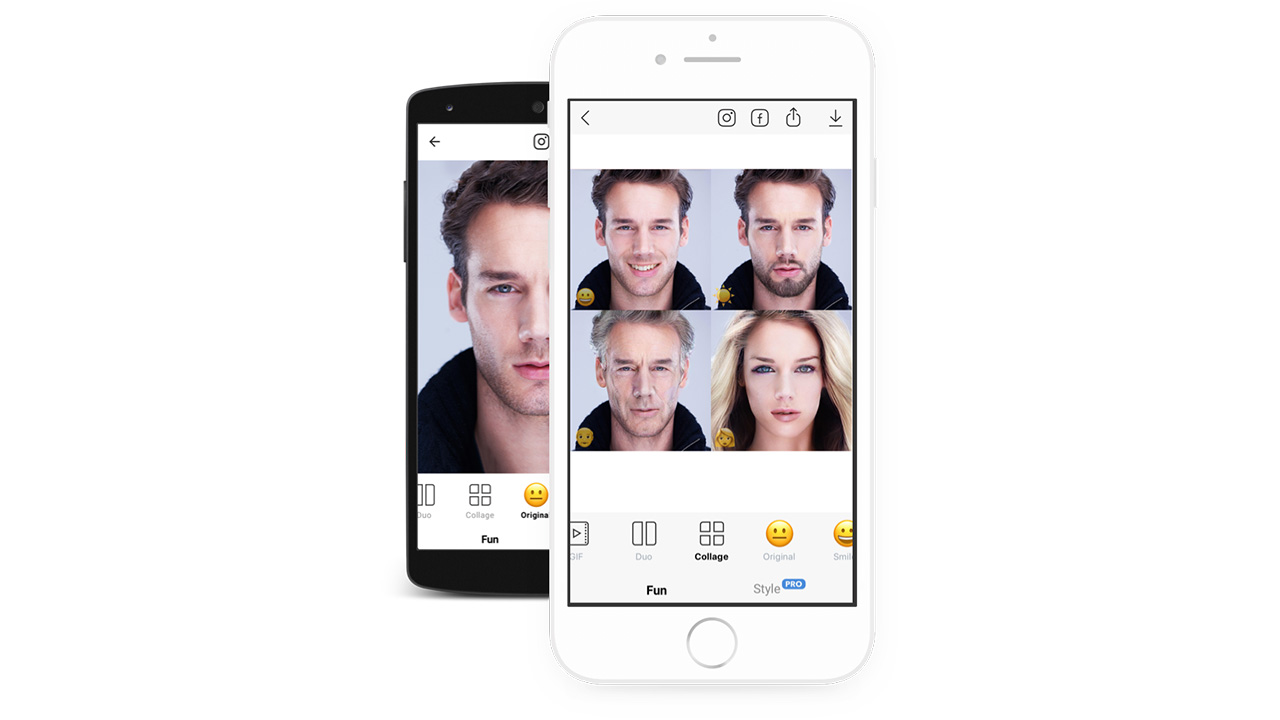Everything

First it was the Bottle Cap Challenge then Area 51 and now in the latest internet phenomenon to hit the web this year, you can age yourself with FaceApp. Over running the feeds of Facebook, Twitter and Instagram, you’ve likely seen every friend and their mum boasting a fresh set of wrinkles and while the simple process of uploading a selfie seems relatively harmless, there could be a more sinister play at hand.
Launching back in 2017, Russian-owned company Wireless Lab has been creating filters for its viral smartphone application, FaceApp. With several features including making you appear “hotter” and more recently, “older”, the free app uses AI technology with an uploaded photo to alter your face. While the app is not new, it has come with its own set of concerns this month as millions of social media users jump on board to test out the tech. So much so that the US Government has launched a federal investigation into the technology.

According to the terms and conditions:
“You grant FaceApp a perpetual, irrevocable, nonexclusive, royalty-free, worldwide, fully-paid, transferable sub-licensable license to use, reproduce, modify, adapt, publish, translate, create derivative works from, distribute, publicly perform and display your User Content and any name, username or likeness provided in connection with your User Content in all media formats and channels now known or later developed, without compensation to you.
“When you post or otherwise share User Content on or through our Services, you understand that your User Content and any associated information (such as your [username], location or profile photo) will be visible to the public.”
Essentially by uploading an image of yourself or giving them any personal information, you grant the company permission to use it however they choose as well as grant access to your entire camera roll of images. Sounds pretty scary right? It’s enough for country leaders to get nervous.
Last week, Democratic Sen. Chuck Schumer called for an FBI investigation into FaceApp and its creators over safety and privacy concerns.
BIG: Share if you used #FaceApp:
The @FBI & @FTC must look into the national security & privacy risks now
Because millions of Americans have used it
It’s owned by a Russia-based company
And users are required to provide full, irrevocable access to their personal photos & data pic.twitter.com/cejLLwBQcr
— Chuck Schumer (@SenSchumer) July 18, 2019
“It would be deeply troubling if the sensitive personal information of U.S. citizens was provided to a hostile foreign power actively engaged in cyber hostilities against the United States,” Schumer said in a letter to the FBI and the Federal Trade Commission.
“I ask that the FTC consider whether there are adequate safeguards in place to prevent the privacy of Americans using this application, including government personnel and military service members, from being compromised,” the senator wrote.
Whether it’s because it’s Russian-owned or that the terms and conditions sign your soul away concerns are growing, however thus far evidence suggests that the app is behaving responsibly. According to reports, other developers have analysed what is being transmitted, and have concluded that all the app is uploading are the photos that the user chooses to apply filters to. So what’s the point of having a huge database of images?
Main anxieties over the app highlight the issue that images could eventually be used for AI facial recognition. While that kind of technology is still in the development stages, other uses could include face modification to improve its own algorithms and technology, facial analysis and deepfake generation – of which could host its own slew of problems.
FaceApp is considered a mere drop in the ocean of applications that are possibly using and abusing our personal data – Snapchat, Instagram and Facebook are all issues for privacy. While it’s safe to say, use it at your own risk, if anything FaceApp is a strong reminder that we’re always being watched. Always.